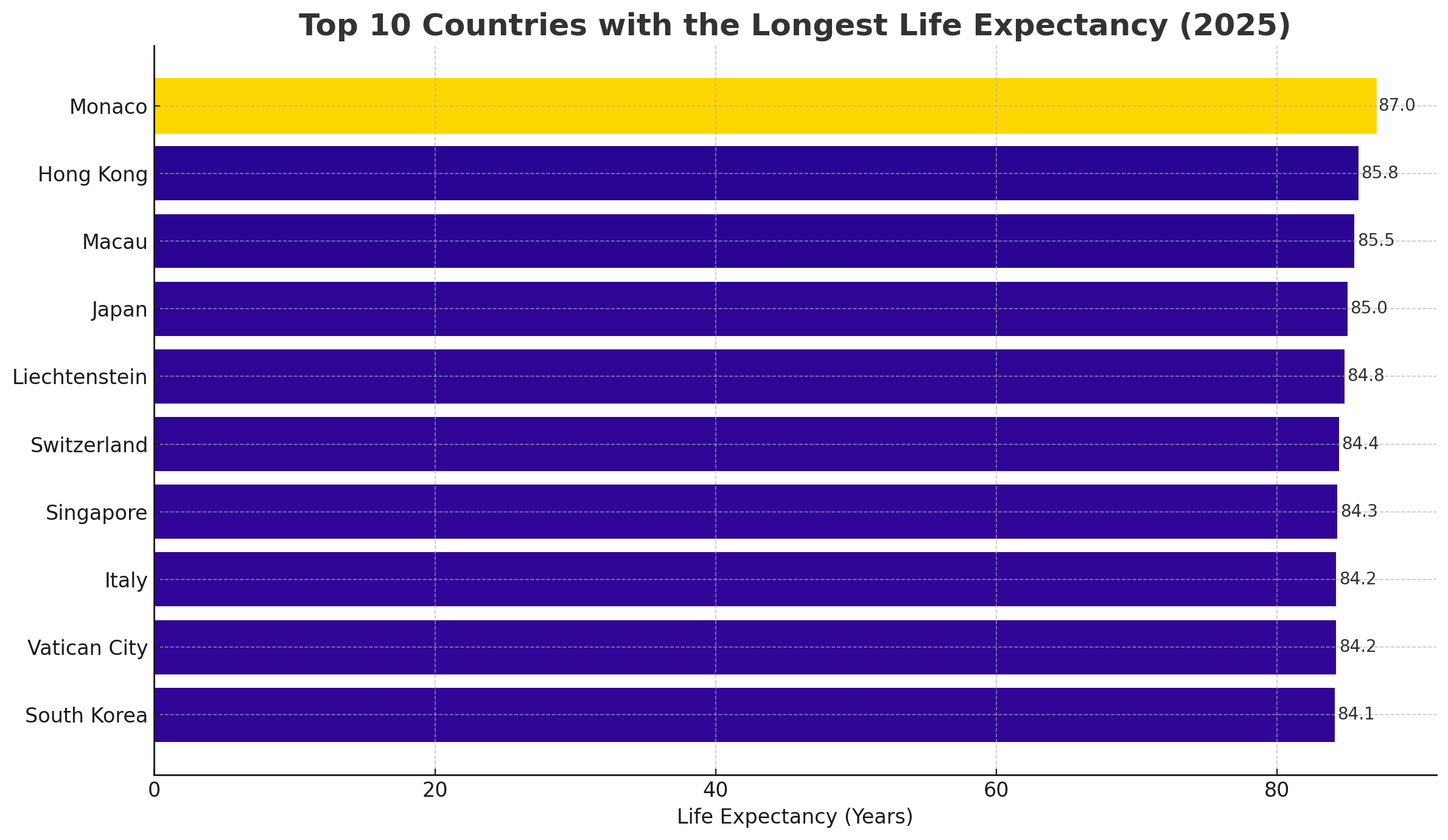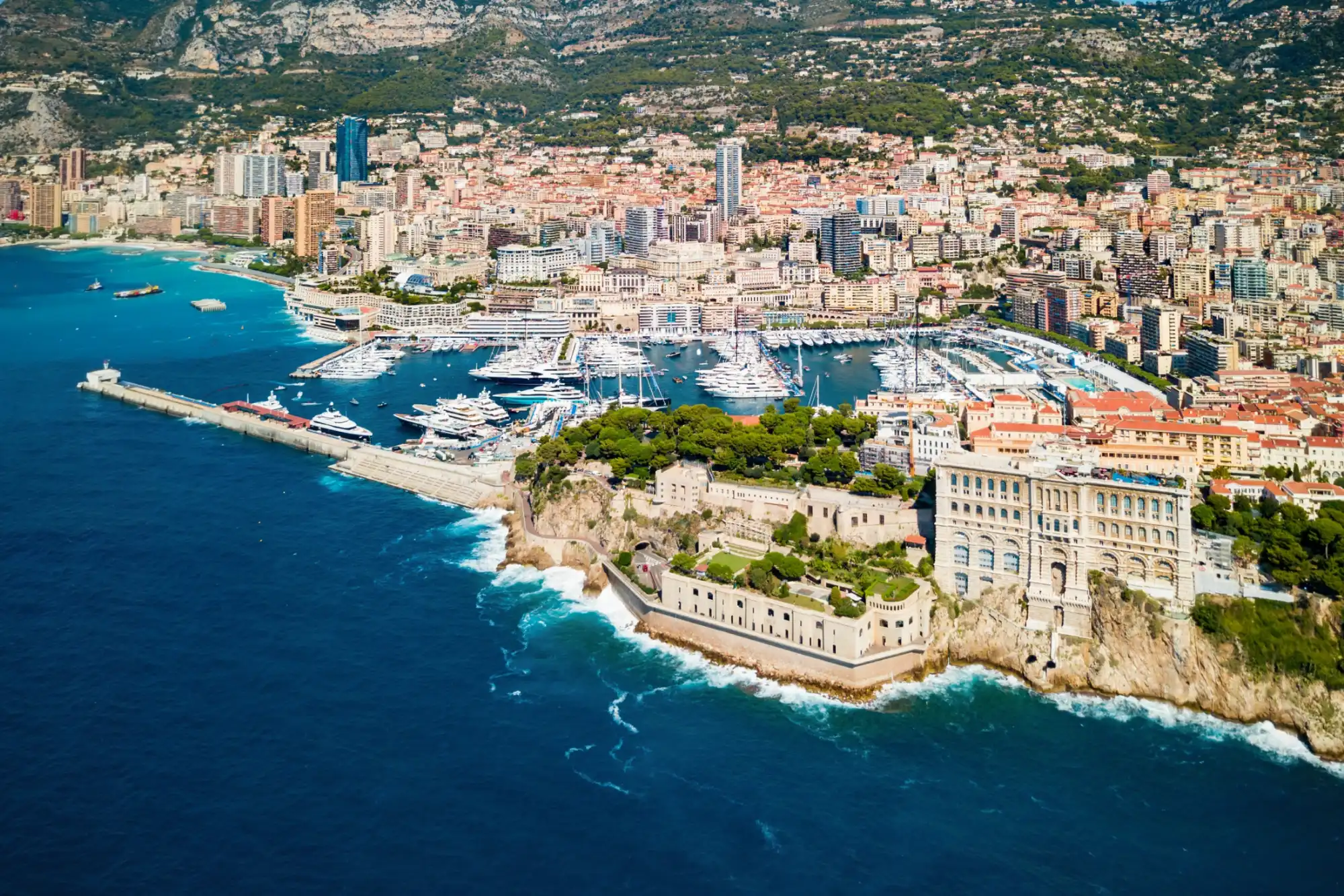Quick Answer (2025): The country with the longest life expectancy in the world is Monaco, where people live an average of about 87 years. That’s more than a decade longer than the global average of 73.5 years.
Introduction
If you want to measure how healthy a country really is, forget the stock market—look at how long its people live. Life expectancy is the ultimate report card for a nation’s healthcare, culture, and environment.
The trend line worldwide is positive: people are living longer than ever before. But there are huge gaps between countries. Some populations are adding years like it’s nothing, while others are still struggling to break out of the 60s. Let’s unpack who’s on top, why they’re there, and what the rest of the world can learn from them.
The Current Country With the Longest Life Expectancy
The gold medal for longevity goes to Monaco, where life expectancy averages 87.0 years. For comparison, the global average is around 73.5 years. That’s a 13–14 year advantage—an extra decade of time with family, travel, and grandkids.
Top 10 Countries by Life Expectancy (2025 Data)
| Rank | Country / Territory | Life Expectancy |
| 1 | Monaco | 87.0 years |
| 2 | Hong Kong | 85.8 years |
| 3 | Macau | 85.5 years |
| 4 | Japan | 85.0 years |
| 5 | Liechtenstein | 84.8 years |
| 6 | Switzerland | 84.4 years |
| 7 | Singapore | 84.3 years |
| 8 | Italy | 84.2 years |
| 9 | Vatican City | 84.2 years |
| 10 | South Korea | 84.1 years |

Spot the trend? Smaller, wealthy nations with strong healthcare and balanced lifestyles consistently dominate the list.
Why Do Some Countries Have Higher Life Expectancy?
It’s not a coincidence—it’s a formula.
Healthcare Systems and Access
Countries with universal or affordable healthcare see fewer deaths from preventable conditions and better outcomes across all age groups.
Diet and Lifestyle
Mediterranean and Asian diets—rich in fish, vegetables, whole grains, and healthy fats—play a massive role. Pair that with active, walkable cities and lower smoking rates, and you’ve got a winning combination.
Wealth and Education
Wealth brings clean water, sanitation, safe housing, and advanced medical care. Education ensures people use that infrastructure wisely.
Environment and Social Stability
Clean air, low crime, and strong social networks add years. On the flip side, pollution, stress, and inequality shave them off.
Global Life Expectancy Trends
- Asia: Leading the pack—Japan, Hong Kong, South Korea, and Singapore.
- Europe: Many countries average above 82 years, with Switzerland and Italy in the top ten.
- North America: Canada ranks higher than the U.S., which continues to lag due to inequality and chronic disease.
- Low-Income Nations: Still trailing, with life expectancies sometimes 20–30 years below the global average.
Globally, life expectancy has surged in the past 50 years, but gains are uneven—and fragile.
Future Projections
- Rising stars: South Korea and Singapore could soon challenge the leaders.
- Technology’s role: AI diagnostics, gene therapies, and personalized medicine will stretch lifespans even further.
- Wildcards: Climate change, pandemics, and inequality could just as easily reverse progress in vulnerable regions.
Conclusion
So, which country has the longest life expectancy in the world? Right now, it’s Monaco at 87 years. But Hong Kong, Japan, and Singapore are hot on its heels.
The real lesson? Longevity isn’t luck. It’s healthcare, diet, environment, education, and social stability. Countries that invest in those areas prove that living longer is achievable—not just aspirational.
FAQ
Monaco tops the list at 87 years, followed by Hong Kong, Macau, Japan, and Liechtenstein.
As of 2025, the global average is about 73.5 years.
Strong healthcare, healthy diets, walkable cities, and cultural habits around balance and moderation.
Healthcare access, diet, wealth, education, environment, and social stability are the biggest drivers.
Yes—though the pace will depend on medical innovation, climate impacts, and how societies manage inequality.

